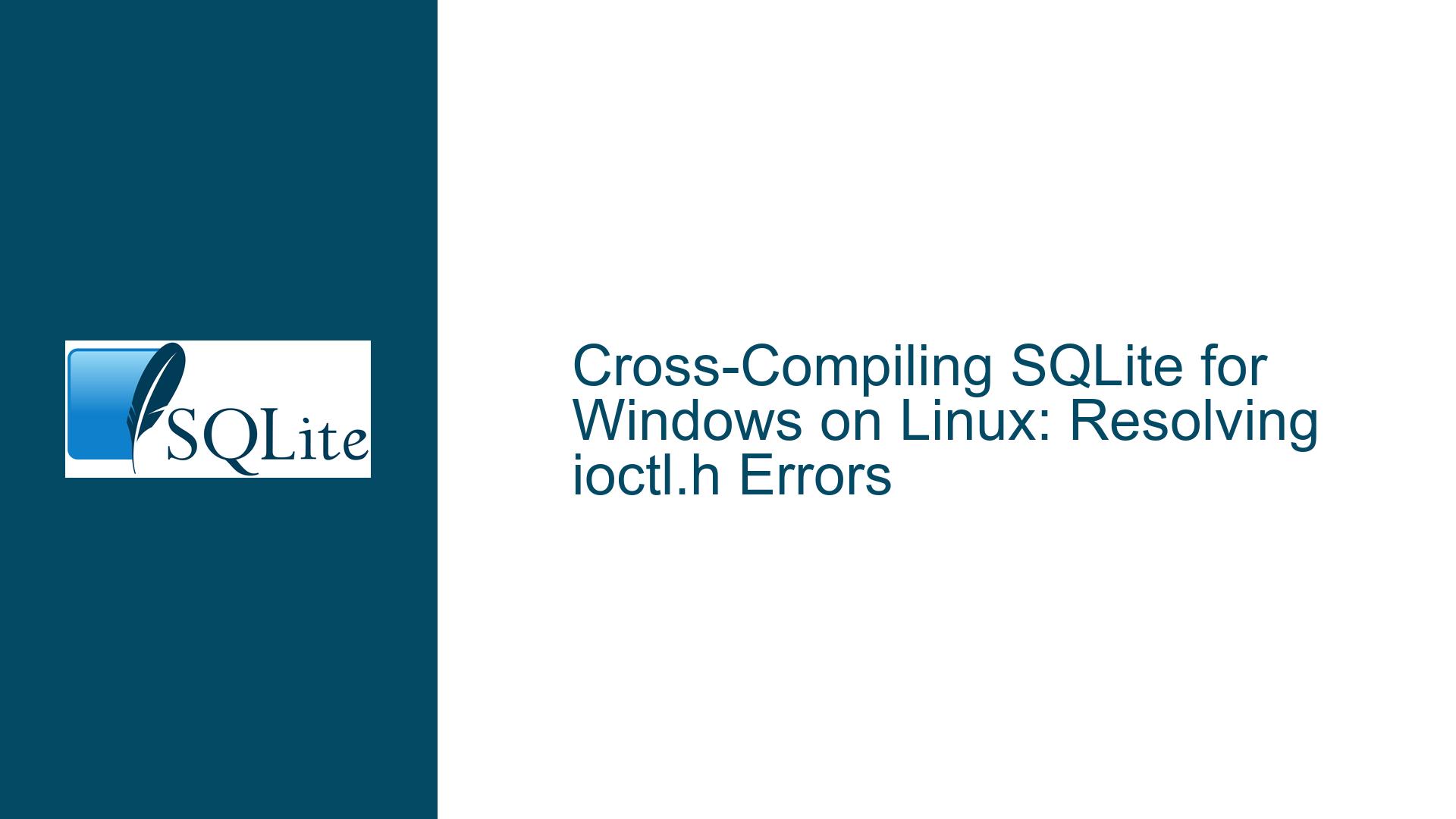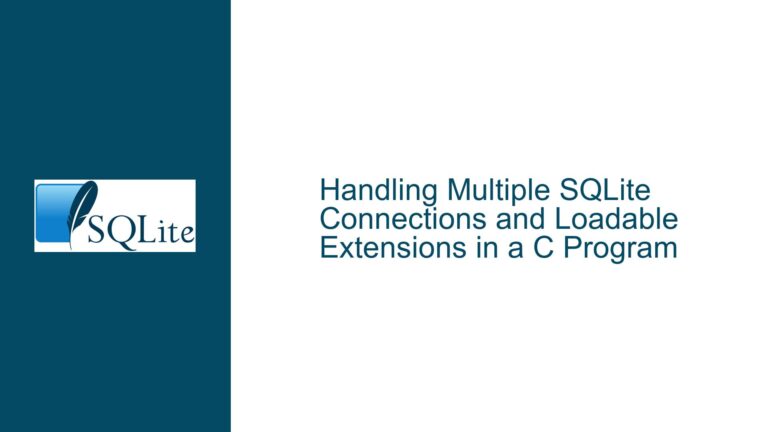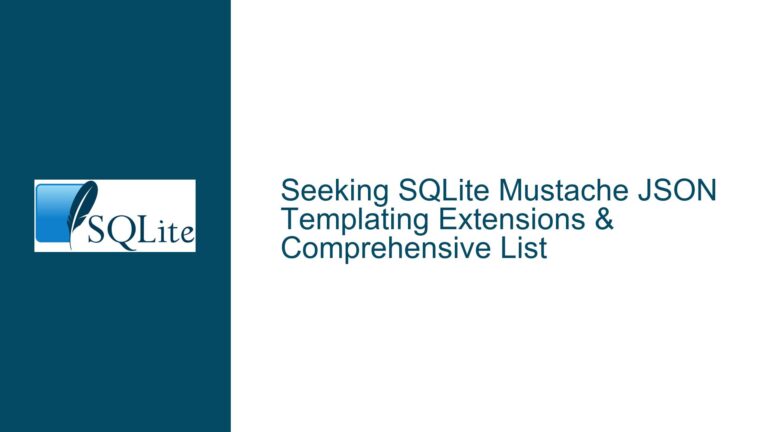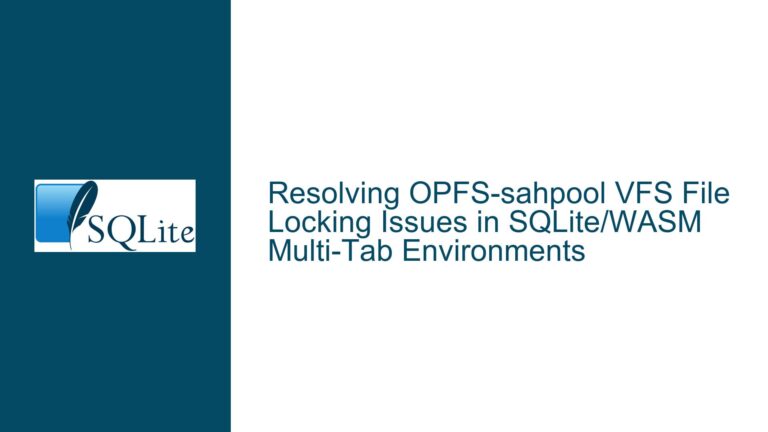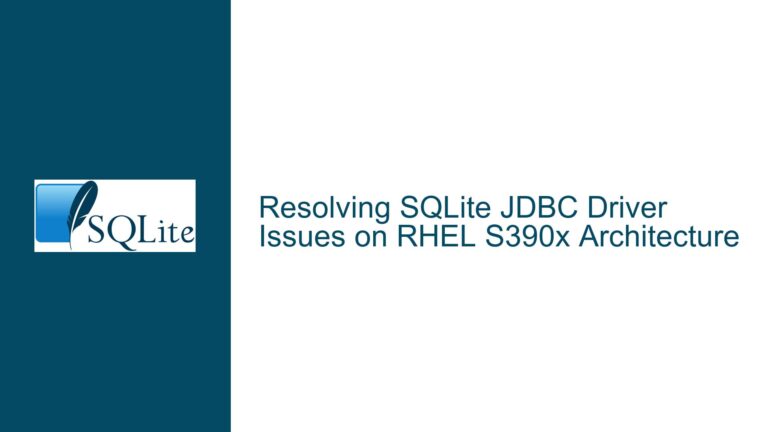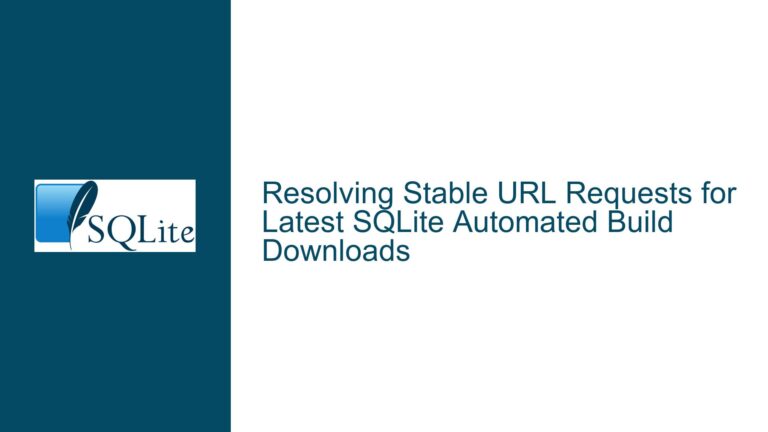Cross-Compiling SQLite for Windows on Linux: Resolving ioctl.h Errors
Cross-Compilation Setup and ioctl.h Dependency Issue
Cross-compiling SQLite for a Windows target on a Linux host involves a series of steps that must be meticulously followed to ensure a successful build. The primary objective is to generate a sqlite3.exe Windows 64-bit binary. However, during the compilation process, a critical error arises: fatal error: sys/ioctl.h: No such file or directory. This error is indicative of a mismatch between the target operating system (Windows) and the dependencies being referenced during the build process. The ioctl.h header file is a Unix-specific header, and its presence in the compilation process suggests that the build system is incorrectly assuming a Unix-like environment.
The error occurs because the SQLite build system, by default, includes Unix-specific code paths when certain preprocessor macros are not properly defined. Specifically, the SQLITE_OS_UNIX macro is likely being defined, causing the build system to include code that references sys/ioctl.h. This header file is not available on Windows, leading to the compilation failure. The challenge here is to ensure that the build system correctly identifies the target environment as Windows and excludes Unix-specific code paths.
Misconfigured Compiler Flags and Environment Variables
The root cause of the ioctl.h error lies in the misconfiguration of compiler flags and environment variables during the cross-compilation process. When cross-compiling for Windows on a Linux host, it is essential to define specific preprocessor macros that inform the SQLite build system about the target operating system. These macros include SQLITE_OS_WIN, SQLITE_OS_WINNT, SQLITE_USE_MALLOC_H, and SQLITE_USE_MSIZE. Without these definitions, the build system defaults to Unix-specific configurations, leading to the inclusion of sys/ioctl.h.
Additionally, the configure script must be invoked with the correct parameters to ensure that the build system targets the correct architecture and operating system. The --host flag must be set to x86_64-w64-mingw32 to indicate that the target is a 64-bit Windows system, and the --build flag should be set to x86_64-pc-linux-gnu to specify the Linux host environment. However, even with these flags, the absence of the necessary preprocessor macros can result in the build system incorrectly assuming a Unix-like environment.
Another potential issue is the incorrect passing of environment variables to the configure script. Environment variables such as SQLITE_OS_WIN and SQLITE_OS_WINNT must be defined before running the configure script, or they must be passed directly as arguments to the script. Failure to do so can result in the build system not recognizing the target environment as Windows, leading to the inclusion of Unix-specific code paths.
Correcting Compiler Flags and Ensuring Proper Environment Configuration
To resolve the ioctl.h error and successfully cross-compile SQLite for Windows on a Linux host, follow these detailed steps:
Install Required Cross-Compilation Tools: Begin by installing the necessary cross-compilation tools on your Linux host. These tools include
binutils-mingw-w64-x86-64,g++-mingw-w64-x86-64, andgcc-mingw-w64-x86-64. These packages provide the MinGW-w64 toolchain, which is essential for cross-compiling to Windows.Clone the SQLite Source Code: Clone the SQLite source code from the official Git repository. Use the following commands to clone the repository and check out the desired version:
git clone https://github.com/sqlite/sqlite cd sqlite git checkout version-3.40.1Define Environment Variables: Before running the
configurescript, define the necessary environment variables to ensure that the build system correctly identifies the target environment as Windows. Use the following commands to set these variables:export SQLITE_OS_WIN=1 export SQLITE_OS_WINNT=1 export SQLITE_USE_MALLOC_H=1 export SQLITE_USE_MSIZE=1Invoke the Configure Script with Correct Flags: Run the
configurescript with the appropriate flags to specify the target and host environments. Use the following command:./configure --host=x86_64-w64-mingw32 --build=x86_64-pc-linux-gnu --disable-tclVerify Intermediate Executables: During the build process, several intermediate executables such as
lemon.exe,mkkeywordhash.exe, andmksourceid.exeare generated. Ensure that these executables are in the correct format (ELF for Linux) and can run on the Linux host. If these executables are in the wrong format, consider using an emulation layer like WINE to run them.Compile the Source Code: Run the
makecommand to compile the SQLite source code. Monitor the output for any errors or warnings. If theioctl.herror persists, verify that the environment variables and compiler flags are correctly set.Handle Remaining Errors: If the
ioctl.herror still occurs, manually inspect the SQLite source code to identify any remaining Unix-specific code paths. Ensure that theSQLITE_OS_UNIXmacro is not defined and that theSQLITE_OS_WINmacro is correctly defined throughout the build process.Generate the Final Binary: Once all errors are resolved, the
makecommand should successfully generate thesqlite3.exebinary. Verify the binary by running it on a Windows system or using an emulation layer like WINE.
By following these steps, you can successfully cross-compile SQLite for Windows on a Linux host, resolving the ioctl.h error and ensuring that the build system correctly identifies the target environment. This process requires careful attention to compiler flags, environment variables, and the correct invocation of the configure script. With these configurations in place, you can generate a Windows 64-bit binary of SQLite while maintaining control over the version and build process.
